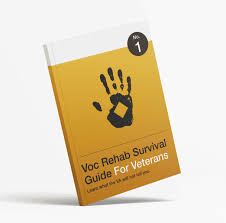An academy is a school or institution dedicated to the study and teaching of a particular subject or field. Academies have been around for centuries, providing students with a unique opportunity to receive specialized instruction in their chosen field.
The concept of an academy dates back to ancient Greece, where it was used to refer to any place of instruction. Plato’s Academy was one of the earliest academies, established in 387 BC. This academy served as a center for philosophical and scientific studies, and its teachings had a significant influence on the development of Western thought.
Modern academies are typically more specialized than their ancient counterparts and may focus on any number of topics, such as science, art, music, literature, or technology. These academies may be private or public institutions and often provide students with the opportunity to gain advanced knowledge in their chosen field through classes and seminars. Many academies also offer internships or apprenticeships that allow students to gain practical experience in their chosen field.
Academies can also provide students with access to resources that they might not otherwise have access to in traditional schools. For example, some academies may offer access to specialized equipment or laboratories that are not available at regular schools. This can give students an advantage when it comes time for them to apply for jobs after graduation.
Overall, academies are an excellent way for students to gain advanced knowledge and experience in their chosen field while having access to resources they might not otherwise have access to at traditional schools. Whether you’re looking for a unique learning experience or just want access to specialized resources, an academy may be the perfect choice for you!
Nine tips for succeeding in an academic setting.
- Set aside time to study and stick to it.
- Break down large tasks into smaller, more manageable chunks.
- Take notes in class and review them regularly.
- Ask questions when you don’t understand something.
- Utilize online resources or tutoring services if needed for extra help with a subject or concept you don’t understand fully yet
- Make use of study groups to discuss course materials and help each other out with assignments
- Use flashcards or other memorization techniques to help remember facts and figures
- Take regular breaks from studying to give your brain a rest
- Stay organized by keeping track of due dates, test dates, etc., in an agenda or planner
Set aside time to study and stick to it.
Time management is a key factor in achieving success in any academic endeavor. One way to ensure that you are making the most of your time is to set aside a specific amount of time each day for studying and stick to it. This can be difficult, especially if you have other commitments such as work or family responsibilities, but it is essential if you want to stay on top of your studies.
When setting aside study time, make sure that it fits into your daily schedule and that you are able to focus on the task at hand without distractions. It is also important to plan ahead and make sure that you have all of the materials and resources needed for your studies so that you don’t waste valuable time searching for them.
Once you have allocated a specific amount of time for studying, make sure that you stick to it. This means turning off all distractions such as phones and social media and focusing solely on the task at hand. You may find it helpful to break up your study sessions into smaller chunks so that they don’t become overwhelming or tedious.
By setting aside dedicated study time each day and sticking to it, you will be well on your way to achieving academic success!
Break down large tasks into smaller, more manageable chunks.
When it comes to tackling big tasks, breaking them down into smaller, more manageable chunks can be a great way to stay organized and get the job done. By breaking down large tasks into smaller pieces, you can focus on one task at a time and avoid feeling overwhelmed.
For instance, if you have a large project due at the end of the semester, breaking it down into smaller tasks can help you keep track of what needs to be done and when. You might break it down by researching your topic, drafting an outline, writing the paper, editing it, and then submitting it. This way you can focus on each individual task one at a time instead of trying to tackle the entire project all at once.
Breaking down large tasks into smaller pieces also helps you stay motivated because you can see your progress as you complete each step. When completing larger tasks that take longer periods of time to finish, this method allows for more manageable goals that are easier to reach in shorter amounts of time.
Overall, breaking down large tasks into smaller chunks is a great way to stay organized and motivated while tackling big projects or assignments. This strategy helps make big tasks more manageable by allowing for short-term goals that are easier to achieve in shorter periods of time.
Take notes in class and review them regularly.
Taking notes in class and reviewing them regularly can be an effective way to improve your academic performance. Noting down key points, ideas, and concepts as they are discussed in class can help you stay focused and organized during lectures. It also allows you to jot down any questions or clarifications that come up so that you can ask your professor or classmates later.
When it comes to reviewing your notes, it’s important to do so soon after the lecture. This way, the material is still fresh in your mind and it’s easier to make connections between different topics. You can also use this time to fill in any missing details or add additional information from other sources. Additionally, by taking the time to review your notes, you can better prepare for upcoming tests and quizzes.
Overall, taking notes in class and reviewing them regularly is a great way to stay on top of your studies. Not only does it help you understand the material better, but it also allows you to retain information more effectively for future use.
Ask questions when you don’t understand something.
Asking questions is an important skill to have in any environment, especially when it comes to learning. Asking questions shows that you are engaged, interested and willing to learn more. It is also the best way to get clarity when you don’t understand something.
When you don’t understand something, it can be intimidating to ask questions. You may feel like you’re being judged or that your question is silly. But it’s important to remember that everyone has different levels of understanding and knowledge. Asking questions shows that you are eager and willing to learn, so don’t be afraid to ask!
If you feel uncomfortable asking a question in front of a group, talk with your teacher or professor one-on-one after class. They will be more than happy to answer any questions you may have.
Asking questions is an integral part of the learning process and can help you gain a better understanding of the material being taught. So don’t be afraid to ask – it could make all the difference!
Utilize online resources or tutoring services if needed for extra help with a subject or concept you don’t understand fully yet
In today’s world, it can be difficult to find extra help with a subject or concept you don’t understand fully. Fortunately, there are many online resources and tutoring services available to help students get the extra help they need.
Online resources such as Khan Academy provide students with a wide variety of educational materials, including instructional videos and practice exercises. These resources can be used to supplement classroom learning and can be accessed from any computer or device with an internet connection.
Tutoring services are also available for those who need more personalized help with a particular subject or concept. Tutors can provide one-on-one instruction and guidance tailored to the student’s individual needs. This type of assistance is especially helpful when trying to master complex topics or concepts that may not have been adequately covered in the classroom.
Utilizing online resources or tutoring services is a great way for students to get the extra help they need when they don’t understand a particular subject or concept fully. With these tools, students can gain the confidence and knowledge they need to succeed in their studies.
Make use of study groups to discuss course materials and help each other out with assignments
Studying in groups can be a great way to learn and get help with course materials and assignments. Group study sessions can provide students with the opportunity to discuss course materials and ask questions about the material that they may not feel comfortable asking during class. Working together in a group can also help students to better understand difficult concepts, as well as helping each other out with assignments.
Group study sessions can also help to keep students motivated and accountable for their work. Having other people around to discuss ideas and hold each other accountable can be beneficial for staying focused and on track with course materials. It also allows students to gain different perspectives on the material being discussed, which can be beneficial for understanding complex concepts.
Overall, studying in groups is a great way for students to stay motivated and engaged in their studies, as well as helping each other out with assignments. Group study sessions are an excellent way for students to get the most out of their courses and make sure they are prepared for exams.
Use flashcards or other memorization techniques to help remember facts and figures
Flashcards and other memorization techniques are great tools for learning facts and figures. They provide an easy, effective way to store and recall information quickly. Flashcards are especially useful for studying, as they can be used to review material quickly and efficiently.
Using flashcards or other memorization techniques to help remember facts and figures is a great way to improve your memory. With the right approach, you can make the most of your time studying, while also making sure you retain the information you’ve learned.
To start using flashcards or other memorization techniques effectively, it’s important to break down complex information into smaller pieces. This makes it easier to remember each individual piece of information. For example, if you’re trying to learn a list of vocabulary words, break them down into smaller groups of related words. This will make it easier to recall the words when needed.
Another helpful tip is to use visual cues when studying with flashcards or other memorization techniques. Visual cues can help jog your memory and make recalling facts and figures easier. For example, if you’re trying to learn a list of countries in Africa, draw a map on one side of the flashcard with the countries labeled on it. This will help you visualize the countries as you study them and make them easier to remember later on.
Finally, practice makes perfect! The more time you spend using flashcards or other memorization techniques, the better your memory will become over time. So don’t be afraid to review material multiple times until it sticks in your head!
Take regular breaks from studying to give your brain a rest
Taking regular breaks from studying is an important part of any successful study plan. Taking a break gives your brain a chance to rest and recharge, allowing you to come back to your studies feeling refreshed and ready to learn.
Studies have shown that taking regular breaks can help improve concentration and focus, as well as reduce stress levels. Breaks also give you the opportunity to take part in activities that are not related to studying, such as exercising or socializing with friends. This can help you feel more motivated and energized when it comes time to get back to your studies.
It is important to remember that taking too many breaks can be counterproductive, so it is best to set a limit on how long you will take each break for. A good rule of thumb is to take a break every hour or two of studying, depending on how long you are studying for. During these breaks, try not to check emails or social media – instead focus on activities that will help you relax and recharge.
By taking regular breaks from studying, you will be able to make the most out of your study time and achieve better results in the long run. So don’t forget – take regular breaks!
Stay organized by keeping track of due dates, test dates, etc., in an agenda or planner
Keeping track of due dates, test dates and other important events is essential for staying organized and on top of your studies. An agenda or planner can help you stay organized and on top of your commitments.
An agenda or planner is a great way to keep track of all the important dates in your life. It will help you remember when tests are due, when assignments are due, when meetings are scheduled and more. With an agenda or planner, you can easily see what needs to be done and when it needs to be done. You can also use it to plan out your day-to-day tasks and prioritize them accordingly.
Using an agenda or planner is a great way to stay organized and make sure that you don’t miss any important deadlines or events. It’s also a great way to ensure that you have enough time to complete all of your tasks in a timely manner. Having an organized plan will help you stay focused on the tasks at hand and make sure that nothing slips through the cracks.
Staying organized is key for success in school, work and life in general. An agenda or planner can help keep track of all the important dates in your life so that nothing gets forgotten about or overlooked. It’s a great tool for staying on top of all your commitments so that you don’t miss anything important!




